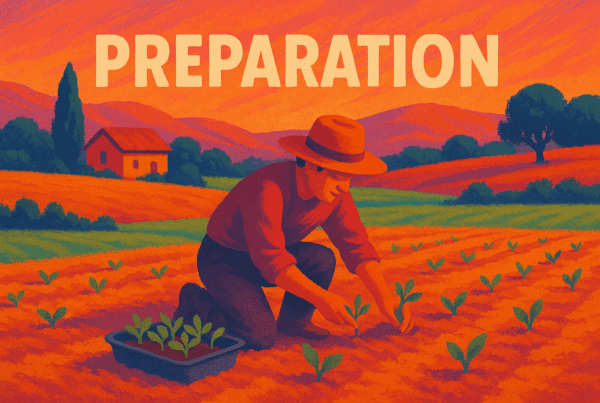
The person facilitating your psilocybin experience is probably one of the most, if not the most, important factor in accomplishing your goals. They help you prepare for the journey with the right mindset, design the setting in which you’ll journey (“set and setting”), and guide you through integration afterwards. You will have the best experience with a facilitator you have a strong rapport with and with whom you trust while you’re in a vulnerable state.
Before choosing a guide, it’s a good idea to reflect on why you’re seeking out this experience. In a survey we conducted of more than 200 journeyers, here were the most common reasons:

Most respondents selected multiple reasons. Having some sense of why you’re here will help you find a facilitator who can best help you accomplish your goals.
When choosing a psilocybin facilitator, it’s important to ask questions that will help you determine if they are a good fit for you. Here are some key questions to ask a prospective state-licensed psilocybin facilitator.
10 Questions to ask your Prospective Psilocybin Facilitator
1. What is your experience with psilocybin and facilitating psychedelic experiences?
A licensed facilitator must meet a minimum training requirement at the very least. However, they should also have extensive experience working with psilocybin, and ideally, should have undergone comprehensive apprenticeships with experienced mentors. It is important to ask about the number of ceremonies they have personally experienced and facilitated. Inquire about the types of experiences they have supported and if those align with your goals. It’s also good to ask about their history and relationship with the medicine.
2. What is your training and education (especially related to your goals)?
Ask if they have received specialized training in psychedelic-assisted therapy or related areas. While a license doesn’t guarantee a practitioner’s competency, it does ensure they have met some training and ethical standards. You may want to ask about their training in psychology, counseling, or psychiatry, depending on the type of experience and healing you’re looking for.
3. What do you consider to be the role of the facilitator?
Most facilitators have a philosophy of listening more than speaking, reflecting more than prescribing. They will be a non-directive guide and believe that the greatest teacher is the medicine itself. It’s important to understand their perspective and how they see their role to ensure that it feels right for you and what you’re hoping to achieve.
4. How do preparation and integration sessions work?
A good guide will offer support before, during, and after the psychedelic journey. Preparation and integration are essential for making sense of the experience. In fact, they are as important as the journey itself. Without the right preparation, a journey won’t be comfortable. And the consensus in the psychedelic community is that integration is where the real work begins. Ask if they provide a guide, primer, or workbook to support these stages. It is ideal to have the same person support you through all three phases, as it builds trust and allows for a more fluid process.
5. What is your personal philosophy around healing, and how do you approach working with plant medicines?
A guide should be able to articulate their philosophy and approach to healing, and it should align with your needs. They should have a desire to be in service to your process, not to “fix” or heal you. It’s also important to understand if they respect and approach the medicine through a similar lens to yours. You may also want to ask about the guide’s spiritual practices or lineages.
6. How do you ensure a safe and comfortable environment?
The setting for a psychedelic experience should be secure and supportive. Ask how they create a safe and comfortable environment. State licensed guides must work within licensed Service Centers (OR) or Healing Centers (CO). Get a sense of what options you have and how these options may support your goals.
7. What is your ethical code and what is your approach to boundaries?
It is crucial to ensure the facilitator has a strong ethical code. They should respect your privacy and maintain strict confidentiality. The guide should also be able to clearly establish their boundaries, expectations for communication and availability, and honor your boundaries in return.
8. What is your experience with cultural sensitivity and respect for traditions?
If the psilocybin experience is conducted within a ceremonial context, ensure that the facilitator demonstrates cultural sensitivity and respect for indigenous traditions and practices.
9. What are your emergency protocols?
Inquire about their procedures for managing potential physical or psychological concerns and how they handle crisis or emergency situations. They should be prepared for these situations by having thought through their potential and have a plan for them, at a minimum. In some cases, having a history of navigating crises can help instill confidence.
10. Do you have references or testimonials you can share?
Seek out feedback from previous clients to gauge their experiences with the facilitator. If they do not have an online presence, you may ask for references.
By asking these questions, you can gain a better understanding of a prospective facilitator’s qualifications, experience, and approach to psychedelic facilitation, which can help you make an informed decision about who will be the best fit for you.
Looking for Legal Psilocybin Services?
We would love to match you with a licensed facilitator in Oregon. (And coming in 2025 to Colorado!) We’ll gather some information about what you’re looking for and make some potential matches.
Book a call with us to get started.



